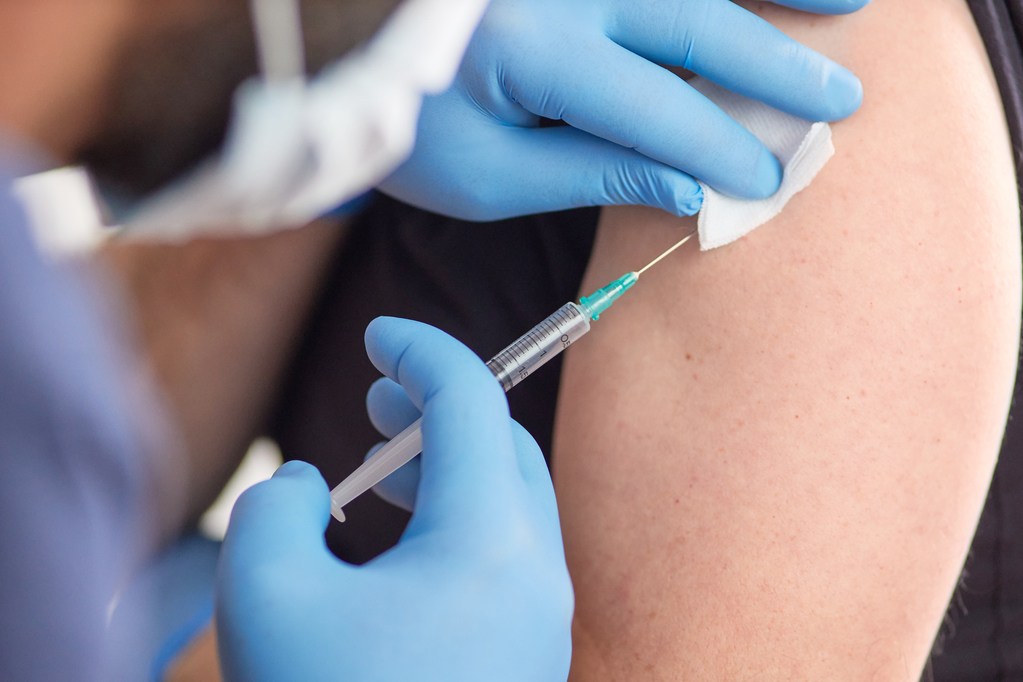No one is safe and protected against the corona virus unless everyone is safe and protected, is the mantra repeated by WHO.
It is also behind EU’s vaccines strategy which is based on solidarity between all member states. It’s true everywhere in the world but particular in Israel, the West Bank and the Gaza strip, where Israelis and Palestinians are living next to each other.
But the Israeli government doesn’t get it and is delaying decisions on approving transfers of vaccines from abroad to the territories and has until now only donated a small amount of the millions of vaccine doses that it have ordered for its own population.
According to media (Haaretz, 18 February), a first batch of 1,000 Russian Sputnik V vaccines, donated by Russia, has arrived in Gaza after Israel approved the transfer. 2,000 doses were supposed to be transferred for health care staff in the over-populated, neglected strip under Hamas rule.
The body in charge with approving the transfer is Israel’s national security council, which is part of Prime Minister Netanyahu’s government. No explanation was given for the delays and small number of vaccine doses. The West Bank has until now only received 10,000 vaccine doses from Russia and 2,000 Moderna doses from Israel.
As other low-income countries in the world, the Palestinian territories are also expecting vaccine doses from the WHO-led COVAX initiative, which aims to accelerate the development and manufacture of COVID-19 vaccines, and to guarantee fair and equitable access for every country in the world.
Last week (19 February), the European Commission announced an additional €500 million for the COVAX Facility, doubling its contribution to date up to €1 billion for the global initiative. This new pledge brings COVAX closer to achieving its target to deliver 1.3 billion doses for 92 low and middle-income countries by the end of 2021. It’s still lagging far behind EU and high-income countries.
EU has already secured access to 2.6 billion vaccine doses thanks to its vaccine strategy, more than enough to vaccinate the EU population five times. Without knowing in advance which vaccines would be safe and effective, it wanted to guarantee vaccine deliveries from several producers.
Another reason for the immense number was to secure a surplus of doses that could be donated to non-EU countries but only after the needs of the EU countries had been covered.
Israel has also managed to buy vaccine doses to all its citizens and is carrying out a successful vaccination campaign which is envied by EU where the vaccinations have got off to a slow start. In fact, Israel seems also to have ordered more vaccines than it needs, especially after facing vaccine hesitancy among its Jewish orthodox and Arab communities and among younger generations, due to fake news.
In total, Israel has reportedly ordered 10 million vaccine doses from Pfizer with the final delivery of 1,5 million doses expected in the next two weeks. From Moderna, it has purchased 6 million doses. But contrary to EU, Israel is less willing to share its supplies of vaccine doses with its neighbours and has even not yet decided to vaccinate Palestinians working in Israel.
The government claims that it has no legal responsibility to provide vaccines to the Palestinian territories. Most legal experts, however, disagree and would argue that international humanitarian law obliges Israel to care for the health of the inhabitants in the territories, most of it under effective Israel control, in this unprecedented pandemic.
It was appalling to read Knesset member Zvi Hauser, chair of the Foreign Affairs and Defense Committee, arguing against the transfer of vaccines to Gaza. He feared that the vaccines would be taken by the Hamas leaders and doubted that they would be given to those who need it the most.
In practice, Hauser's approach amounts to collective punishment of the civilian population in Gaza. As one of the deserters from the Blue White party after the previous elections, Hauser is hardly a politician with any moral credibility left. Ayelet Shaked, a former minister of justice, was more bluntly and said in an interview that she did not care if people in Gaza would be infected.
A recent twist to Israel’s “humanitarian” vaccination strategy was the disclosure in media of Israel’s agreement with its arch enemy Syria. In exchange for the return of an Israeli citizen who intentionally had crossed the border to Syria, Israel will buy hundreds of thousands of the Sputnik V vaccine from Russia for the Assad regime, to be used by those supporting him.
More importantly, by showing such a lack of generosity and unwillingness to support the Palestinian Authority in this unprecedented emergency, Israel is acting against its own best interests and is wasting an opportunity to build confidence for reconciliation in the future. In fact, Israel is doing harm to both itself and its immediate neighbours.


